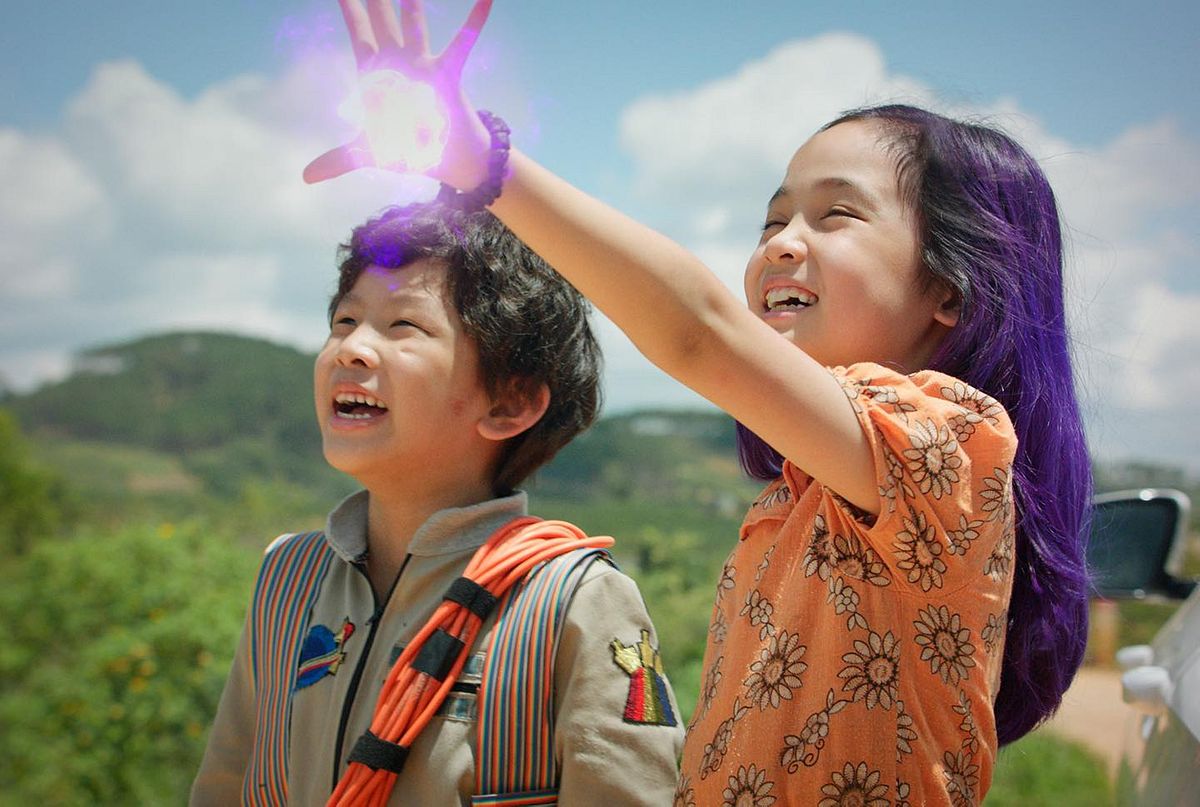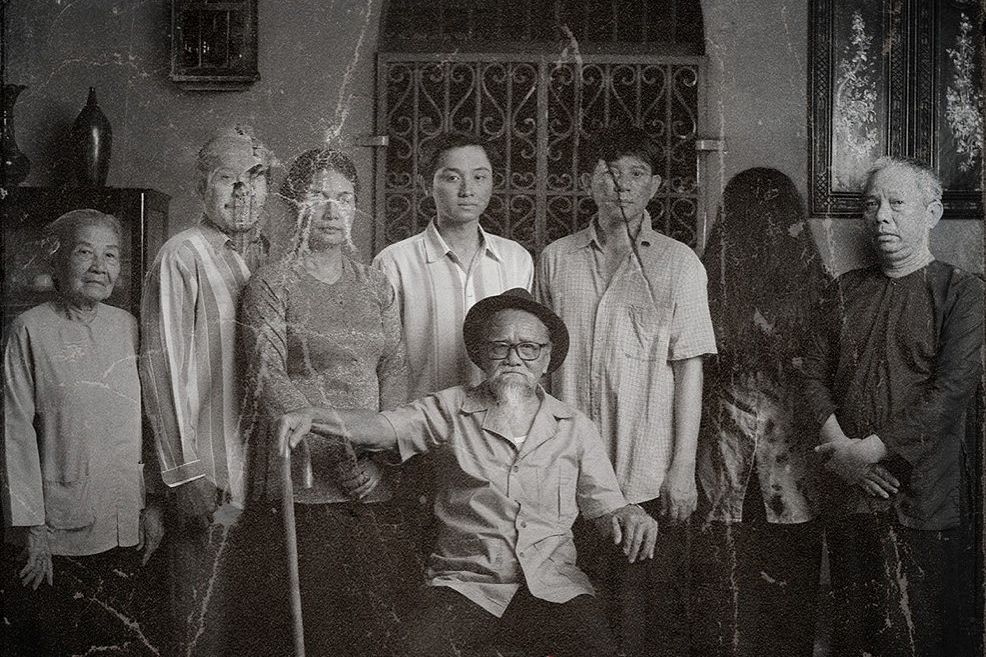Maika is a loving tribute to Vietnam’s childhood icon of the 1980s, but for those who didn’t grow up with the original Eastern European series, what’s in it for us?
As a child of the 1990s, cartoons on VHS practically raised me. Before they left for work, my parents would leave me at home alone with a selection of titles du jour, from Chip ‘N Dale to Prince of Egypt. I learnt to rewind tapes and audit the family’s weekly rentals before I knew algebra. During the day, it was Disney and anime that captured my attention, while in the evening, Australian youth series like Thunderstone and Ocean Girl dominated our television.
Most Saigoneers would remember these blasts from the past with fondness, though looking back, one would be hard-pressed to name a few Vietnamese movies for children that have made a mark in our collective psyche the way foreign media products did. In the television realm, the late 1990s and early 2000s introduced classic youth staples like Kính Vạn Hoa, Ngũ Quái Sài Gòn, and Đội Đặc Nhiệm Nhà C21, but what’s the last good Vietnamese children’s movie you remember?

The poster for Maika. Image via CGV.
In the children’s cinema genre, the earliest contenders that stood out are Tuổi Thần Tiên (1995) and Mẹ Con Đậu Đũa (1998), though one could argue that these tell adult stories but feature child characters. It took until Tôi Thấy Hoa Vàng Trên Cỏ Xanh (2015) for Vietnamese audiences to fully enjoy a children’s movie that truly values its young characters’ perspectives — we don’t talk about Trạng Tí, no, no, no. Global pandemic notwithstanding, since 2015, the local cinema industry has churned out upwards of 40 movies a year. With children and teenagers occupying such a significant segment of our society, it’s appalling how few of those 40 were made to cater to their viewing interests.
Then comes Maika: The Girl From Another Planet, landing with a slot at the Sundance Film Festival and a main cast of three unknown child actors. As the first waves of the pandemic were breathing down their neck, the production crew and director Hàm Trần managed to put together an excellent children’s movie that might be on its way to becoming an instant family classic, even though for older viewers, there’s no compelling reason to watch (or rewatch) it except with your kids on a movie night.
It was 5pm on a weeknight when I stepped into an empty auditorium for my screening of Maika. To my relief, people gradually started to trickle in as trailers played: a young couple settled down next to me; in front, a family of four shared popcorn; two rows ahead, a gaggle of tweens snickered over jokes. The theater was half full when we began.
Maika is named after its main character, an alien who takes the form of a young girl after her spaceship crashed into a lake near Đà Nẵng. She befriends Hùng, a shaggy-haired boy who recently lost his mom. They embark on a journey to gather necessary components to help connect her with an alien friend on Earth, though this quest is made complicated by the enigmatic quasi-SpaceX corporation Cygnus, whose smarmy CEO Nghĩa is obsessed with capturing Maika for his spacefaring schemes.

Some scenes from the OG Czechoslovakian series. Image via Nét Đẹp Phương Đông.
By now, you have probably heard that Maika was inspired by Spadla Z Oblakov, a 1978 Czechoslovakian sci-fi series that was a sensation in Vietnam in the 1980s. Its main character is an alien named Maija, but known as Maika in Vietnam, where it was so popular that the bowl-cut bob is called the “Maika” — Zoomers might recognize this hairdo these days as the “Will Byers.”
The 2022 flick is not a remake or sequel per se, but rather a spiritual successor to the series. In the movie, Hùng can be seen watching Spadla Z Oblakov at home, and upon encountering the new extraterrestrial friend, decides right away to name her after his favorite Czech character. Viewers who haven’t seen the original will have no trouble following the story because it’s a bona fide children’s movie with pungent fart jokes, bombastic gadgets, and a script that won’t intellectually challenge anyone over the age of 12.
The science-fiction side of the narrative might invite comparisons to E.T. while the dramatic fight with evil Cygnus will bring to mind pretty much any Pokémon game, but the film sprinkles in plenty of heartfelt moments and genuinely good jokes in between clichés. In Hùng and Maika’s first encounter, he couldn’t understand her extraterrestrial speech, so she quickly searched her internal library for a Vietnamese language module, which turned out to be a northern accent à la Google’s virtual assistance. “Oh, you’re just a Hanoian, I thought you’re an alien,” Hùng quips. The rest of the jokes are rarely on this level, though a kid in front of me did burst into an inconsolable bout of laughter upon seeing a villain get slapped in the face with a hunk of kimchi.
The real shining beacons of Maika are the trio of kids that anchor the main roles. These kids could act! It’s a real treat to watch child actors in a Vietnamese movie who deliver lines like actual characters and not parrots reciting memorized words.

From left to right: Cu Béo (Tin Tin), Hùng (Lại Trường Phú), and Maika (Chu Diệp Anh). Photo via Sức Khỏe & Đời Sống.
Cu Béo (Tin Tin) provides comic relief through his arsenal of fancy gadgets, courtesy of his rich but absent dad. His animosity towards Hùng shifts after they find a common enemy in the Big CorpTM that’s taking advantage of a migrant worker (Maika) — truly a timely tale celebrating the workers’ movement. Cu Béo barely has any personality, but Tin Tin is a natural comic; his jokes land despite the over-the-top material that has great potential to fall flat. Chu Diệp Anh as Maika has fantastic physicality in her embodiment of a gangly tweenage alien, and her orange raincoat is a touching homage to the OG character, although her shade-shifting hair is less iconic and unlikely to trend like the mushroom head of 1980s Maika.
Lại Trường Phú is hands-down the MVP of Maika. Phú steps into the role with the ease of a seasoned veteran and not a budding name, exuding palpable chemistry with any screen partner. Hùng, in Phú’s portrayal, is inquisitive, thoughtful, and loyal, but never annoyingly precocious — a symptom often spawned as a result of an unnatural script. Hùng’s genuine bond with Maika makes it easy to root for them and suppress my inner adult urge to tell them to sit their ass down.

The adult story is nice, but pales in comparison to the acting by the child cast. Photo via Sức Khỏe & Đời Sống.
Apart from the children, most of the adult roles are serviceable but one note. The role of the father is saved by his chemistry with Hùng, while his love interest is largely pointless and seems to be included just so adult viewers have a storyline their own age to pay attention to. The landsharks are there to coerce the residents of Hùng’s apartment complex to relocate to make room for a development project, but are written as cartoon characters — think the thieves in Home Alone, but less fun. The decision to depict the boss as a manic Japanophile is tonally off and makes me uncomfortable. Last and certainly least, Cygnus mastermind Nghĩa is not fleshed out enough to leave any mark.
I have to single out the sound editing and mixing as an unexpected success for Maika. This movie is the one occasion where a healthy sprinkling of playful sound effects, comedic tunes and animated ambiance really enhances the viewing experience. The score by Christopher Wong (Mắt Biếc, Tôi Thấy Hoa Vàng Trên Cỏ Xanh) brings us along the journey of Hùng, Maika and Cu Béo effortlessly.

The comical land mafia goons. Photo via Sức Khỏe & Đời Sống.
All in all, I have to applaud the production of Maika for undertaking a quest rarely attempted these days: taking children seriously — not just by making the movie with them in mind, but also by addressing child grief and growing pains without talking down to child characters. I wish the story could have been more tightly written to give the core characters more development: Cu Béo has an invisible father who’s always too busy for him and his brother, and tries to fill the void with lavish gifts. How does this affect the boy? We barely know anything about Maika outside of her spaceship malfunction and kidnapping; as it is, she seems more like an exotic pet than a person with a real story and personality.
I haven’t seen Spadla Z Oblakov, so I can only speak for myself and the Spellbinders, Sinbad and Luz Clarita of my childhood. When the choices were scarce, you learnt to love what was on offer. Now that we’ve reached enough of a narrative abundance for Vietnamese productions to start paying attention to less lucrative, but no less important, genres like children’s movies, perhaps it’s time to put down the iPad and head to the ticket office.
















